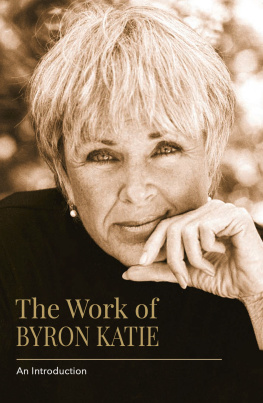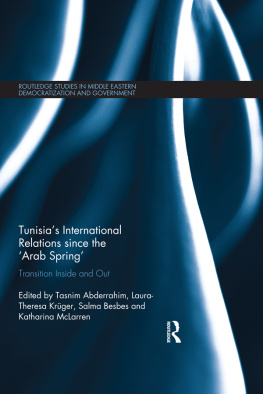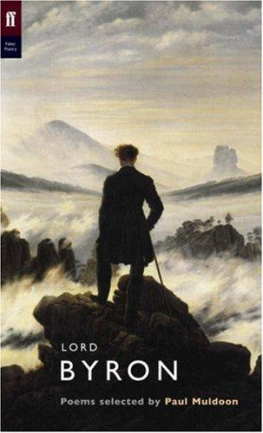ROUTLEDGE LIBRARY EDITIONS: SOCIETY OF THE MIDDLE EAST
Volume 2
ARAB EDUCATION IN TRANSITION
ARAB EDUCATION IN TRANSITION
A Source Book
BYRON G. MASSIALAS AND SAMIR AHMAD JARRAR
First published in 1991 by Garland Publishing, Inc.
This edition first published in 2016
by Routledge
2 Park Square, Milton Park, Abingdon, Oxon OX14 4RN
and by Routledge
711 Third Avenue, New York, NY 10017
Routledge is an imprint of the Taylor & Francis Group, an informa business
1991 Byron G. Massialas and Samir Ahmad Jarrar
All rights reserved. No part of this book may be reprinted or reproduced or utilised in any form or by any electronic, mechanical, or other means, now known or hereafter invented, including photocopying and recording, or in any information storage or retrieval system, without permission in writing from the publishers.
Trademark notice: Product or corporate names may be trademarks or registered trademarks, and are used only for identification and explanation without intent to infringe.
British Library Cataloguing in Publication Data
A catalogue record for this book is available from the British Library
ISBN: 978-1-138-19040-5 (Set)
ISBN: 978-1-315-62817-2 (Set) (ebk)
ISBN: 978-1-138-19234-8 (Volume 2) (hbk)
ISBN: 978-1-315-62959-9 (Volume 2) (ebk)
Publishers Note
The publisher has gone to great lengths to ensure the quality of this reprint but points out that some imperfections in the original copies may be apparent.
Disclaimer
The publisher has made every effort to trace copyright holders and would welcome correspondence from those they have been unable to trace.
ARAB EDUCATION IN TRANSITION
A Source Book
Byron G. Massialas
Samir Ahmad Jarrar
1991 Byron G. Massialas and Samir Ahmad Jarrar
All rights reserved
Library of Congress Cataloging-in-Publication Data
Massialas, Byron G., 1929-
Arab education in transition : a source book / Byron G. Massialas, Samir Ahmad Jarrar.
p. cm. (Reference books in international education ; vol. 14) (Garland reference library of social sciences ; v. 550)
Includes bibliographical references (p. ).
ISBN 0-8240-7736-9
1. EducationArab countries. 2. EducationSocial aspectsArab countries. 3. Education and stateArab countries. 4. Arab countriesSocial conditions. I. Jarrar, Samir Ahmed. II. Title. III. Series. IV. Series: Garland reference library of social science ; v. 550.
LA1491.M37 1991
370.9174927dc20
90-43672
CIP
Printed on acid-free, 250-year-life paper Manufactured in the United States of America
In memory of
DR. MATTA AKRAWI
1901-1982
a leading Arab educator
SERIES EDITORS FOREWORD
This series of reference works and monographs in education in selected nations and regions is designed to provide a resource to scholars, students, and a variety of other professionals who need to understand the place of education in a particular society or region. While the format of the volumes is often similar, the authors have had the flexibility to adjust the common outline to reflect the uniqueness of their particular nation or region.
Contributors to this series are scholars who have devoted their professional lives to studying the nation or region about which they write. Without exception they have not only studied the educational system in question, but they have lived and travelled widely in the society in which it is embedded. In short, they are exceptionally knowledgeable about their subject.
In our increasingly interdependent world, it is now widely understood that it is a matter of survival that we understand better what makes other societies tick. As the late George Z.F. Bereday wrote: First, education is a mirror held against the face of a people. Nations may put on blustering shows of strength to conceal public weakness, erect grand faades to conceal shabby backyards, and profess peace while secretly arming for conquest, but how they take care of their children tells unerringly who they are (Comparative Method in Education, New York: Holt, Rinehart & Winston, 1964, page 5).
Perhaps equally important, however, is the valuable perspective that studying another education system provides us in understanding our own. To step outside of our commonly held assumptions about schools and learning, however briefly, and to look back at our system in contrast to another, places it in a very different light. To learn, for example, how the Soviet Union handles the education of a multilingual society; how the French provide for the funding of public education; or how the Japanese control admissions into their universities enables us to understand that there are alternatives to our familiar way of doing things. Not that we can often borrow from other societies; indeed, educational arrangements are inevitably a reflection of deeply rooted political, economic, and cultural factors that are unique to a society. But a conscious recognition that there are other ways of doing things can serve to open our minds and provoke our imaginations in ways that can result in new approaches that we would not have otherwise considered.
Since this series is designed to be a useful research tool, the editors and contributors welcome suggestions for future volumes as well as ways in which this series can be improved.
Edward R. Beauchamp
University of Hawaii
The operation of the schools in the Arab world is a topic about which very little is known in the west. This volume attempts to provide information about the Arab school and thus contribute to an understanding of what is taught, by whom, and under what conditions. In a sense this volume is a sequel to an earlier study by the authors, Education in the Arab World (1983), a study which described formal and non-formal education in the Arab countries and posited a number of educational policy issues. The present volume, while building upon the previous work, concentrates on the element of change in the Arab schools, some intended and some unintended.
Specifically, this volume seeks to (1) define the interaction between traditional elements and innovative forces impinging on the Arab school and describe and assess the outcomes of schooling with regard to student cognitive learnings and value orientations, (2) review and critique policies that concern the education of Arab children and youth and identify policy issues which need to be resolved, and (3) provide a list of sources of information which educators wishing to study further a topic or an issue related to Arab education may consult.
We have been greatly influenced by the works of leading Arab social scientists including Hisham Sharabi, Halim Barakat, and Saad Eddin Ibrahim. We have also drawn ideas from the works of the critical theorists who assert that the hidden rather than the official curriculum is responsible for what students know and value in their world. Indeed, the application of the theory of the hidden curriculum to the study of the Arab school brought about significant results (See ).














